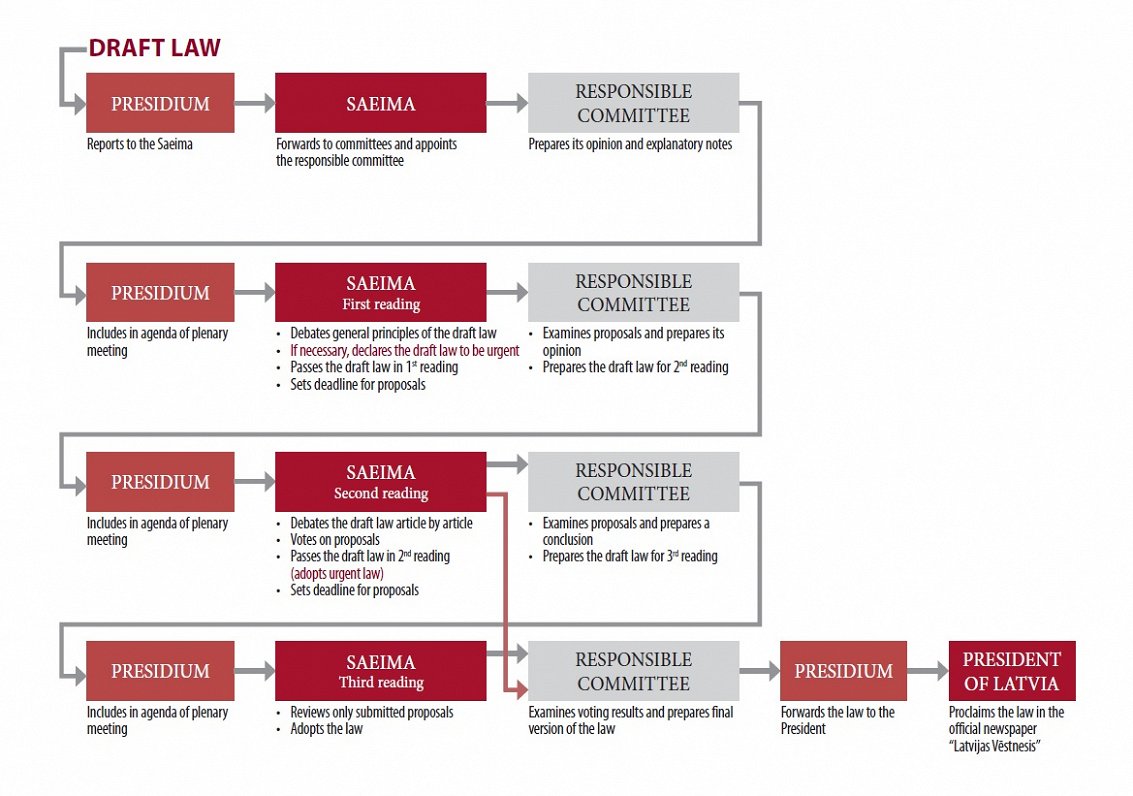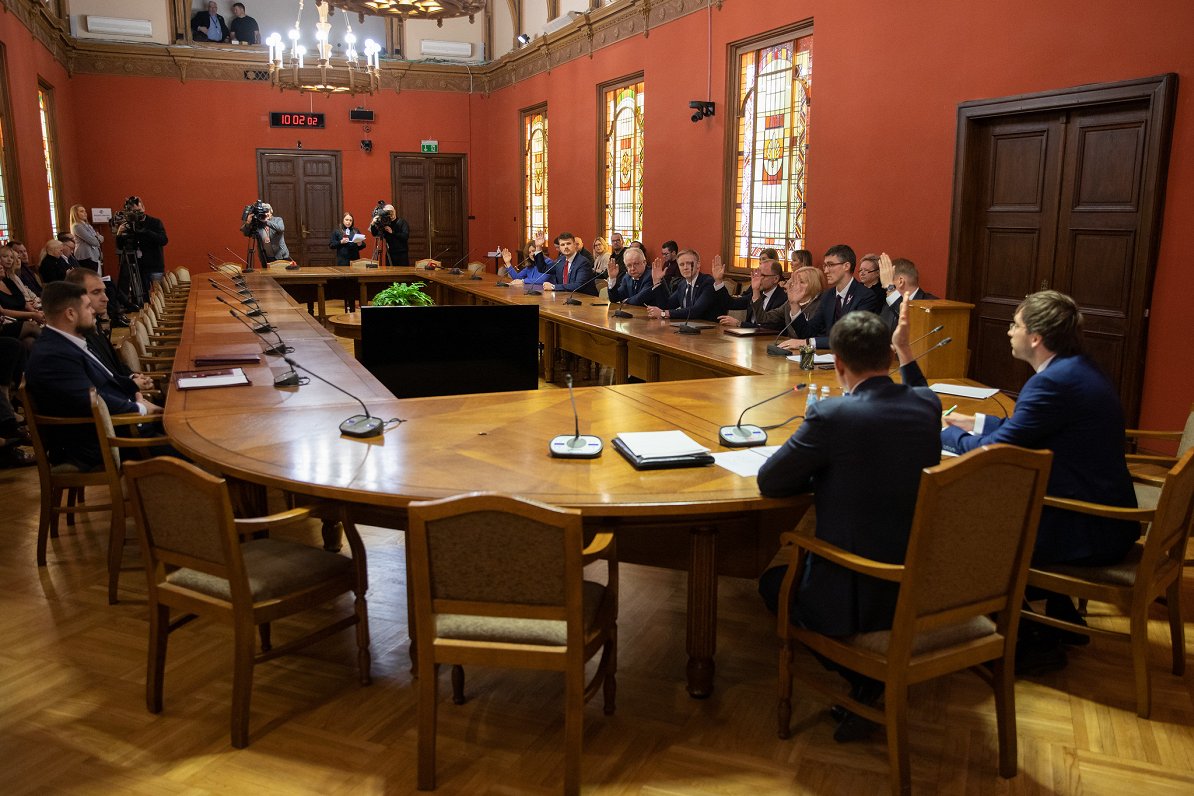Committees (often referred to as 'commissions' because the Latvian word is 'komisijas', though technically commissions are ad hoc committees formed to examine one particular issue) consist of Saeima deputies from all parties, including both government and opposition members and play an important role in scrutinizing, revising and amending draft laws, which usually require three readings in parliament.
Each committee works in a certain legislative field, monitoring the activities of the executive power, and perform considering draft laws, proposals and submissions.
In total there are 16 different committees operated by the Saeima, so with 100 deputies in total it is not unusual for deputies to serve on more than one. However, a deputy can work in no more than two permanent committees and three sub-committees at the same time.
In some of the most notable appointments confirmed Wednesday, Rihards Kols (National Alliance) will continue to head the influential Foreign Affairs Committee, former Health Minister Anda Čakša (New Unity) will head the Budget Committee, and the State Administration and Local Government Committee will be led by Daiga Mieriņa (Greens and Farmers Union). Chairman of the Human Rights and Public Affairs Commission will be Didzis Šmits (United List).

In the first reading at the committee meeting and the plenary sitting, MPs only consider the concept of the draft law, in effect, the draft law as a whole without changing the wording. Not only MPs and relevant public authorities, but also experts and representatives of the society participate in committee meetings and discuss draft laws. However, only members of the responsible committee may vote on a draft law.
When considering a draft law at a plenary sitting of the Saeima, MPs may make a decision with a majority vote of at least half of the Members present (not less than 50 MPs). If a draft law is supported by the Saeima, a deadline for submitting proposals for the next reading is set.
During the second and third readings at the committee meeting and the Saeima sitting, MPs debate on proposals submitted regarding specific articles or their parts. Proposals on amendments to a draft law may be submitted by a committee of the Saeima, a parliamentary group, individual MPs, as well as the President, Prime Minister, Deputy Prime Minister, a minister, the parliamentary secretary of a ministry (authorised by the respective minister), and the Ombudsman.
Proposals related to the legislative technique, codification, and conformity of the proposed wording with existing laws are submitted by the Legal Bureau of the Saeima. Only the responsible committee may submit proposals on the draft law beyond the set deadline. After examining all the submitted proposals, MPs vote on the draft law as a whole. If passed in three readings (urgent legislation may be passed with only two readings) a law adopted by the Saeima comes into effect 14 days after its promulgation by the President, unless specified otherwise in the law itself.




























